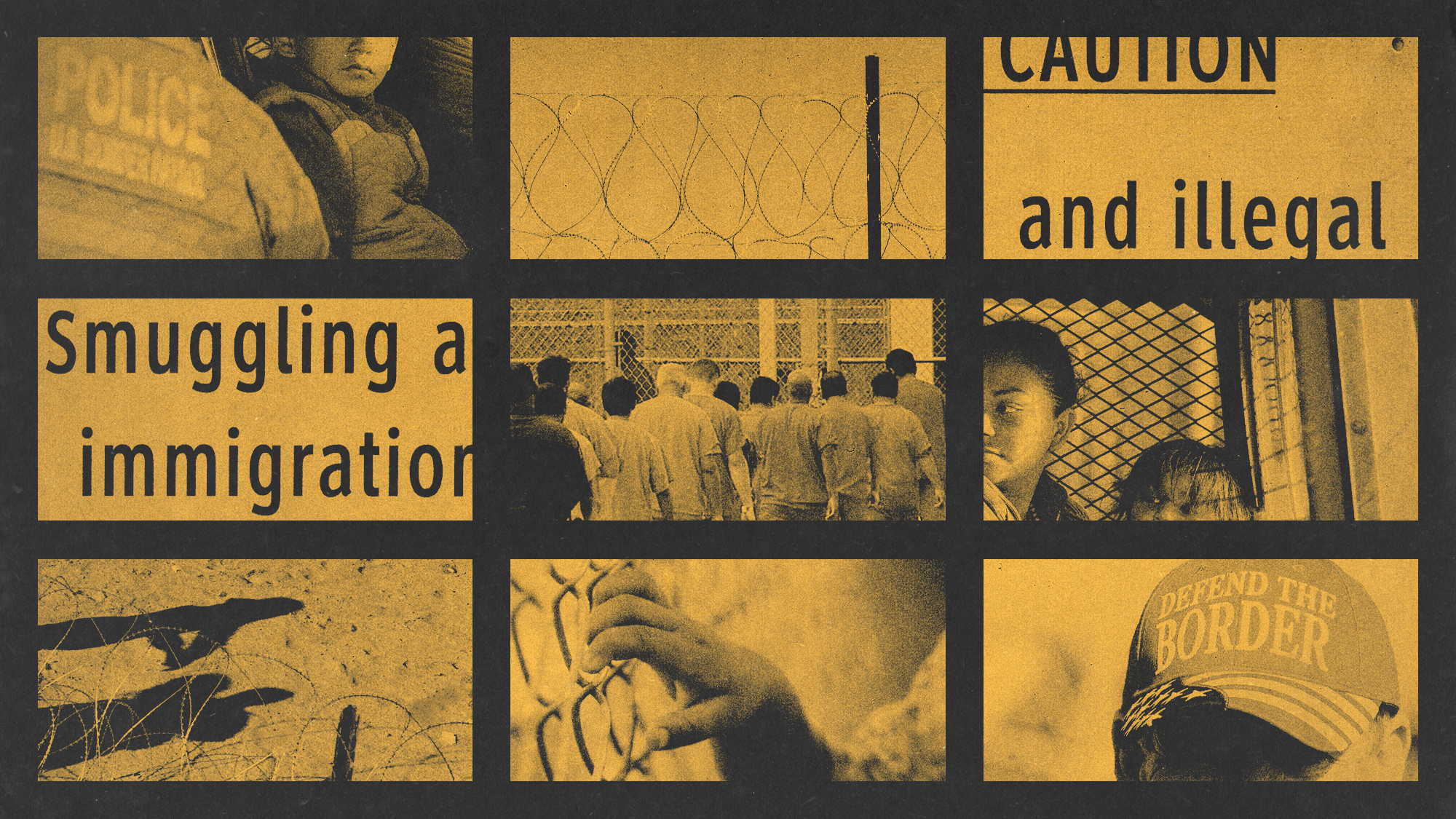What will Trump's mass deportations look like?
And will the public go along?


A free daily email with the biggest news stories of the day – and the best features from TheWeek.com
You are now subscribed
Your newsletter sign-up was successful
During his presidential campaign, Donald Trump promised mass deportations of undocumented migrants. Now he's planning to make good on that promise.
Trump confirmed after the election that he plans to "declare a national emergency and use the U.S. military to carry out mass deportations," Axios said. The president-elect has announced the appointment of "immigration hardliners" to his cabinet, including Tom Homan as "border czar" and South Dakota Gov. Kristi Noem (R) as secretary of Homeland Security. The planned deportations could affect as many as 11 million undocumented migrants, Axios said, and could "impact roughly 20 million families across the country."
The new administration will "first target criminals who pose security risks," said The Christian Science Monitor. But Trump will probably "broaden the scope" after that. That would require a whole-of-government effort, in which the new president would "call on everyone from the U.S. military to diplomats overseas" to turn his plans into reality, Reuters said. The big questions now are whether he'll have the resources to carry out large-scale deportations, and whether he can persuade foreign countries to accept the return of their citizens. "I worry a little about overpromising," said George Fishman, a Homeland Security official in the first Trump administration.
The Week
Escape your echo chamber. Get the facts behind the news, plus analysis from multiple perspectives.

Sign up for The Week's Free Newsletters
From our morning news briefing to a weekly Good News Newsletter, get the best of The Week delivered directly to your inbox.
From our morning news briefing to a weekly Good News Newsletter, get the best of The Week delivered directly to your inbox.
What did the commentators say?
The president-elect has a "mandate on the border and to deport criminals," The Wall Street Journal said in an editorial. The devil is in the details: Trump and his advisers have "talked about mass deportation in sweeping terms." But Trump has also suggested that "he isn't interested in illegal grandmothers." Finding the balance is important: while polls indicate public support for deportations, that backing "will ebb if the public sees crying children as their parents are deported," said the Journal. Going too far with deportations "could get ugly fast."
Trump's election victory "gives illegal aliens a couple of months to get out while the getting is good," Mark Krikorian said at National Review. Part of the point of a sweeping deportation regime is to keep immigrants from coming and staying in the first place and to persuade them to "return home on their own by making it impractical to stay." That saves the federal government time and money, while migrants get to avoid the indignity of being locked up. "It would be easier for everyone involved," Krikorian said, "and more dignified for the departing immigrants than the alternative."
What next?
The crackdown could "start on day one," said Politico. The incoming administration has learned a few legal lessons from Trump's first-term setbacks — there are hopes of "avoiding an early defeat" like the court reversal of his 2017 travel ban targeting Muslim-majority nations. But the logistics could prove challenging: The largest number of deportations in a single year came in 2013, when 430,000 migrants were returned to their home country. Trump's aides are aiming for a higher number. "It is just a resource game," said John Sandweg, former acting director of Immigration and Customs Enforcement, "but it's a hard game to play,"
There's "growing support" for deportations, said CNN. But most exit poll respondents, 56%, say that undocumented migrants "should be offered a chance to apply for legal status." Instead, respondents seem most interested in deporting criminals or people without jobs. That "doesn't suggest a mandate for mass deportation."
A free daily email with the biggest news stories of the day – and the best features from TheWeek.com
Joel Mathis is a writer with 30 years of newspaper and online journalism experience. His work also regularly appears in National Geographic and The Kansas City Star. His awards include best online commentary at the Online News Association and (twice) at the City and Regional Magazine Association.
